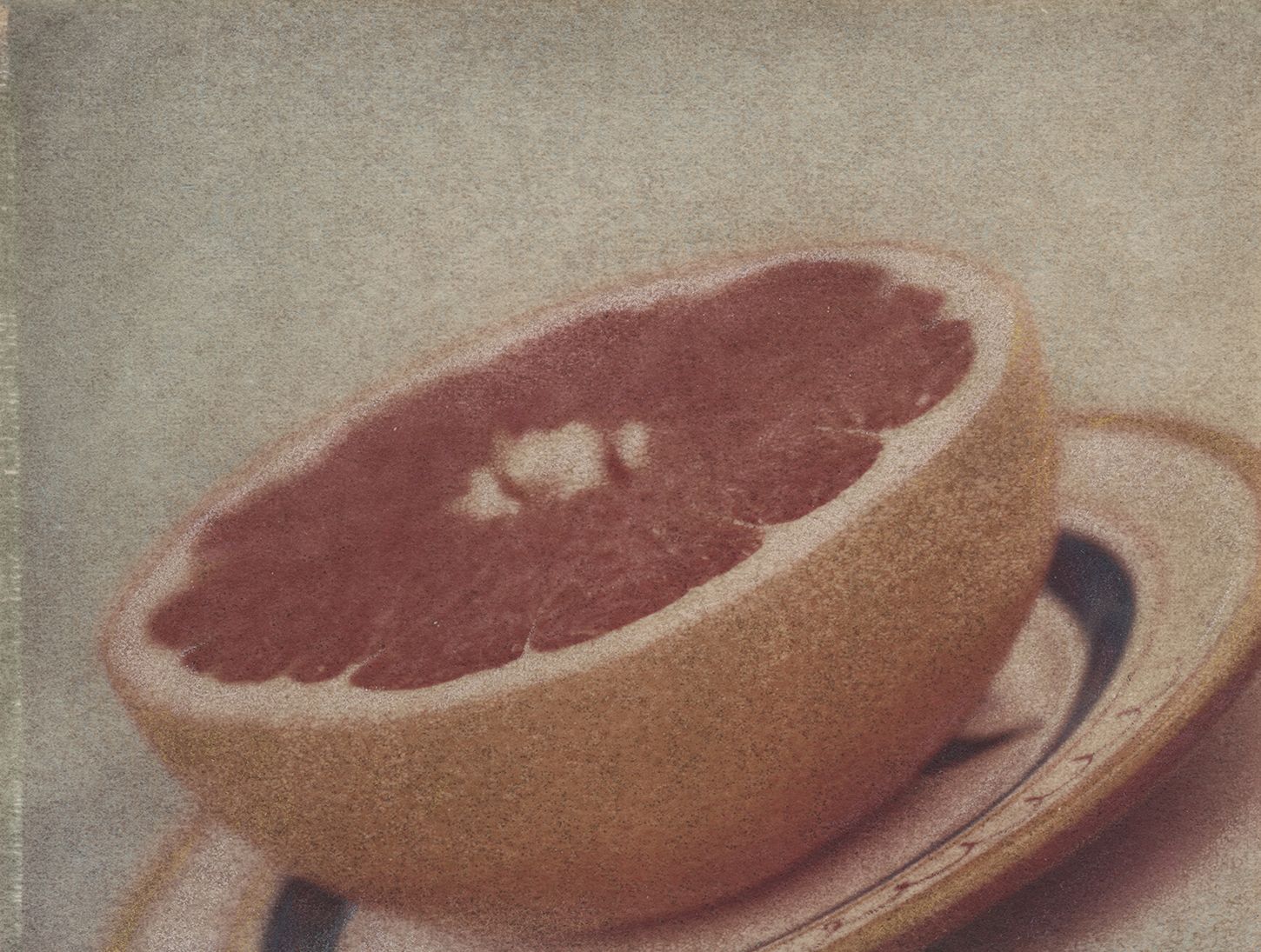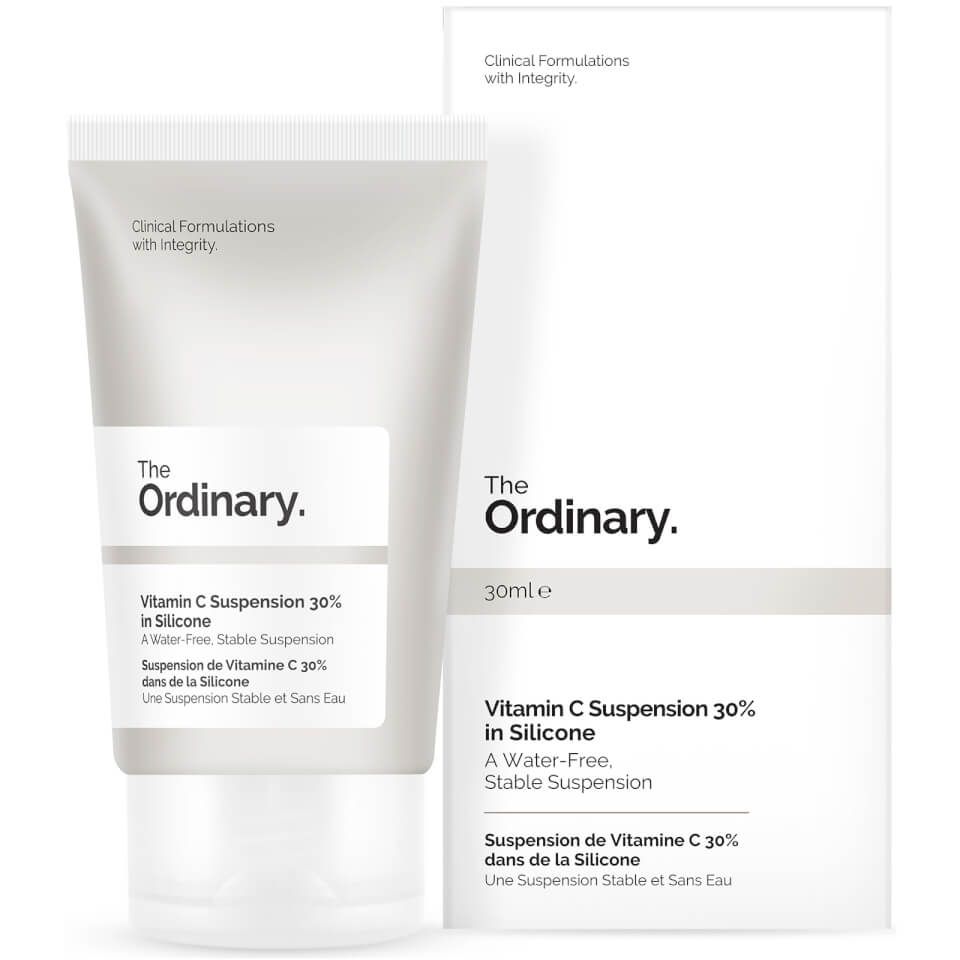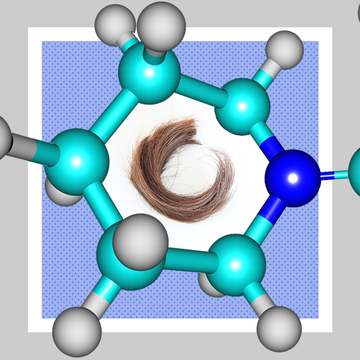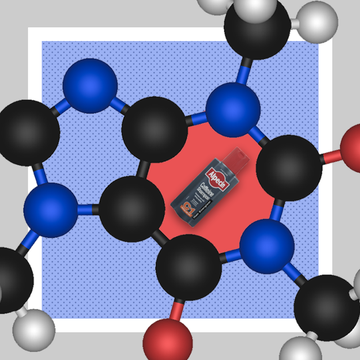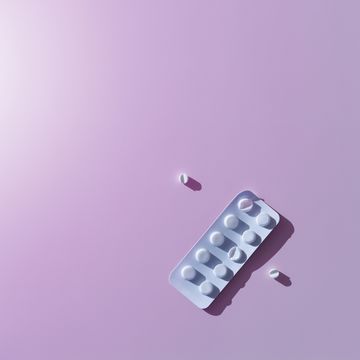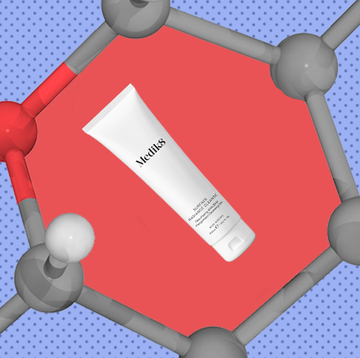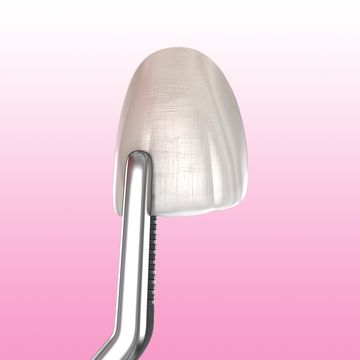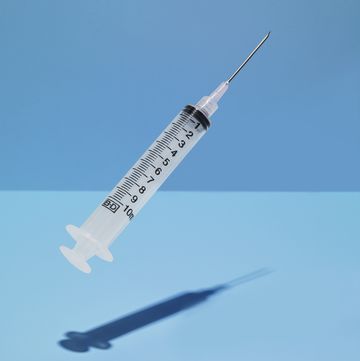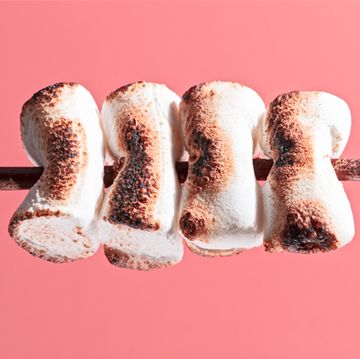Grooming is a world filled with jargon, technicalities and insider knowledge – some of it true, a lot of it bluster. That's where the Grooming Glossary comes in: a brand new series that drops the science on the world of skincare and haircare so you can self-care better – and with the know-how to separate the wheat from the chai-infused anti-aging miracle potion. This week: vitamin C, and why it swerves the laws of ageing (and scurvy).
"In cases of mild irritation or redness, stop using immediately and call the police." Or just see your GP. Either way, these words of warning apply to almost every ointment, face cream and Hinge date. And, though it's deeply alarming, it's good advice – adverse reactions can pose all sorts of health risks. Nobody wants to postpone the signs of ageing and come out with a face like a pepperoni pizza. But what if you're supposed to feel a little sting?
Vitamin C has been a key ingredient in the bathroom cabinet since the Nineties, when it was found to do much more than protect our cells and maintain healthy blood vessels – but it's always floated in and out of cosmetics. "Prior to its entry in the mainstream market, 1-ascorbic acid – which is the chemically active form of vitamin C – was used in chemical peels and homemade topicals," says Dr Uliana Gout, founder of Harley Street's LAM Clinic, an aesthetic medicine practitioner. "As an interesting fact, vitamin C was discovered in 1912, isolated shortly after in 1928 and then chemically produced in 1933. But the scientific impact and cohort of important evidence-based literally really came to the forefront around 20 to 30 years ago."
Its frequent use in cosmetics can be explained by way of vitamin C's antioxidant properties, but Gout also points to its powers of exfoliation; the process at which old skin cells are sloughed away to make way for the new. And newer faces are younger faces. "I love 1-ascorbic acid because it's a great de-pigmenter and treatment for photo-damaged skin. Most animals and plants can synthesise their own vitamin C, but not humans, and skin clarity – such as clear, radiant skin – is a universal beauty and grooming metric. Which means that no matter what one's gender, age or background, we all strive to achieve skin clarity."
And, just as hyaluronic acid retains more water in the skin, and just as retinol can halt signs of ageing, vitamin C can stop the clock thanks to the prevention of a process Gout calls 'oxidative stress'.
"As an antioxidant, it works to protect the skin from reactive oxygen species (often abbreviated to ROS) and therefore protect the skin from oxidative stress," says Gout. "Oxidative stress ultimately results in inflammation and skin-ageing, and vitamin C skincare works to reverse that. And if that wasn't enough, vitamin C abets collagen synthesis – we all need more and better-quality collagen as we age."
An ingredient that keeps you looking young, wild and free? Wowee. But know that vitamin C is something of an erratic teammate. "Not many people know that it's an unstable ingredient, and one which needs the right percentage and strength," says Gout. "I see lots of patients who say they use vitamin C but when I find investigate further, I often have to tell them that they simply have not been getting the right dose or stable product most of the time. Hence money and time wasted unfortunately." Too much vitamin C, and there can be too much exfoliation; too much exfoliation, and there's a change you get rid of the good stuff too.
Which brings us to the sting. The first few applications of a vitamin C cream can be tingly at best, and termite hill at worst – all signs that it's actually doing its intended job. "The ‘sting’ is a normal part of the experience when using acidic preparations. I always explain that to my patients; same thing happens when you have a chemical peel," says Gout. "This is a great sign that you have an exfoliative process starting." So don't panic, and don't rush to your GP just yet.
But don't rush and slap on the first product you try, either. Gout recommends shopping around to find the right vitamin C for U. Whereas oily, congested skin is better off without oil-based formulations, the reverse is true for those that suffer dryness. Your best bet is to get in the dermatologist's chair, get a consultation, and get the right balance for you. That'll take the sting out of it.
Like this article? Sign up to our newsletter to get more articles like this delivered straight to your inbox
Need some positivity right now? Subscribe to Esquire now for a hit of style, fitness, culture and advice from the experts
